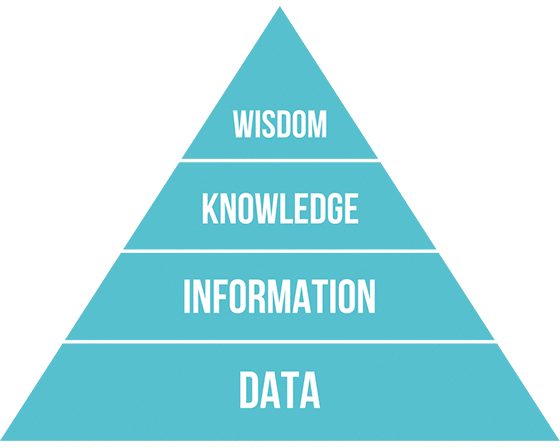Find the intersection of how you are wired & how you are inspired. This is the sweet spot for connecting with purpose.
As we see messages of "seek to find meaning, not happiness," floating around the social web, I know we're all thinking "Ah, yes that makes sense, because if you find meaning, fulfillment and happiness are likely going to come along for the ride." And, indeed they do!
In founding RistRoller and Emanant Wellness with my daughter Jade, I was able to connect with purpose more deeply. We believe that when people feel their best, they do their best. Our tagline "feel awesome, do awesome," is really an extension of my life's purpose: helping others feel awesome so they can do awesome (via wellness inspiration, education, and healing products). It's basically an upward spiral of goodness, wellness, and awesomeness for all involved. Understanding my core values and checking back in with them as I "make moves" has been key in developing myself and this business.
I get into a bunch of the science later in this post, but in short, connecting with purpose can have a measurable impact on your life, health (healthier heart, immune system, brain) and lifespan (adds 7 years to your life expectancy).
Overcoming Doubt and Fear
(Spoiler Alert: There's Actually Nothing to Fear Here)
For those of you who aren't feeling ready to connect with purpose, note that there is absolutely no pressure or torture involved here. I realize that the idea of "purpose" can be daunting, but we're just here, sipping our tea, trying not to spit it out when my hilarious puns come up, and we are reflecting on all the data we already have. That's right: You already have all the data. You have all the clues. You just need to organize them.
As a tech-girl, I like relating this to the idea of Data-Information-Knowledge-Wisdom (DIKW). This is the DIKW Pyramid that I am borrowing from the world of Knowledge Management in the IT arena.

Data refers to the raw data or raw facts, which maybe are not organized at this point. We move up a level to information after we add context (who? what? where? when? how many?) to that data to get meaning and purpose. Knowledge takes all those sources of information, adds experience, insight, and intuition and connects it all together. Data, information, and knowledge are gained by looking backwards. This is what I mean by "you have all the data." There are discrete things you know about yourself. When you put them under the lens and add context, you have information at your disposal. Answering a list of questions will give you information about your personality. Answering another list of questions, will give you information about your core values. More question sets yield information on talents, skills, passions, interests, and inspirations. Connecting all this information gives you knowledge. Your knowledge of purpose lives in the overlapping region between how you are wired and how you are inspired. Whereas data, information, and knowledge are gained by looking backwards, wisdom is all about going forward and "doing the right things."
"Why bother?" you may ask. The science shows that those having a strong sense of purpose:
- live longer
- have less chance of cardiovascular events (stroke, heart attack, coronary artery disease)
- have healthier brains
- improved relationships
- healthier immune systems
Connecting with purpose (at any age) can help you live longer, according to research published in Psychological Science, a journal of the Association for Psychological Science.
Those with a low sense of purpose (as measured by psychological surveys) are more likely to have a stroke, heart attack, or coronary artery disease requiring surgery. Randy Cohen, MD’s study on purpose (Psychosomatic Medicine: Journal of Biobehavioral Medicine) showed that for people with a high sense of purpose (as compared with the “low” group) there was a 23 percent reduction in mortality and a 19 percent reduction in cardiovascular events. On a similar note, the Memory and Aging Project found that those with purpose were 44% less likely to have a stroke.
According to four studies conducted as part of the the Memory and Aging Project, subjects who scored higher on the purpose scale were:
- 29% less likely to develop mild cognitive impairment
- 52% less likely to develop Alzheimer's Disease
- 2 ½ times more likely to be free of dementia
- 44% less likely to have a stroke
- 52.3% less likely to have microscopic blood vessel infarcts (this basically mean dead crap in your blood) that damage brain tissue
(Source: http://www.everydayhealth.com/news/purpose-life-good-your-health/ )
A sense of purpose also strengthens the immune system. High levels of eudaemonic well-being were associated with lessened inflammatory response and increased antibody production.
There is also a ton of science which shows how affirming your values can impact your life profoundly, in many positive ways. One such article is here, but ask Google for more and Google will oblige.
And lastly, I will leave you with a few of my favorite quotes on purpose:
“Don’t worry about what the world needs. Ask what makes you come alive and do that, because what the world needs is people who have come alive.”― Howard Thurman
“A musician must make music, an artist must paint, a poet must write, if he is to be ultimately at peace with himself. What a man can be, he must be.”― Abraham H. Maslow
"Clarify your purpose. What is the why behind everything you do? When we know this in life or design it is very empowering and the path is clear."
― Jack Canfield
“If you have a strong purpose in life, you don't have to be pushed. Your passion will drive you there.”― Roy T. Bennett
“He who has a why to live for can bear almost any how.”― Friedrich Nietzsche

